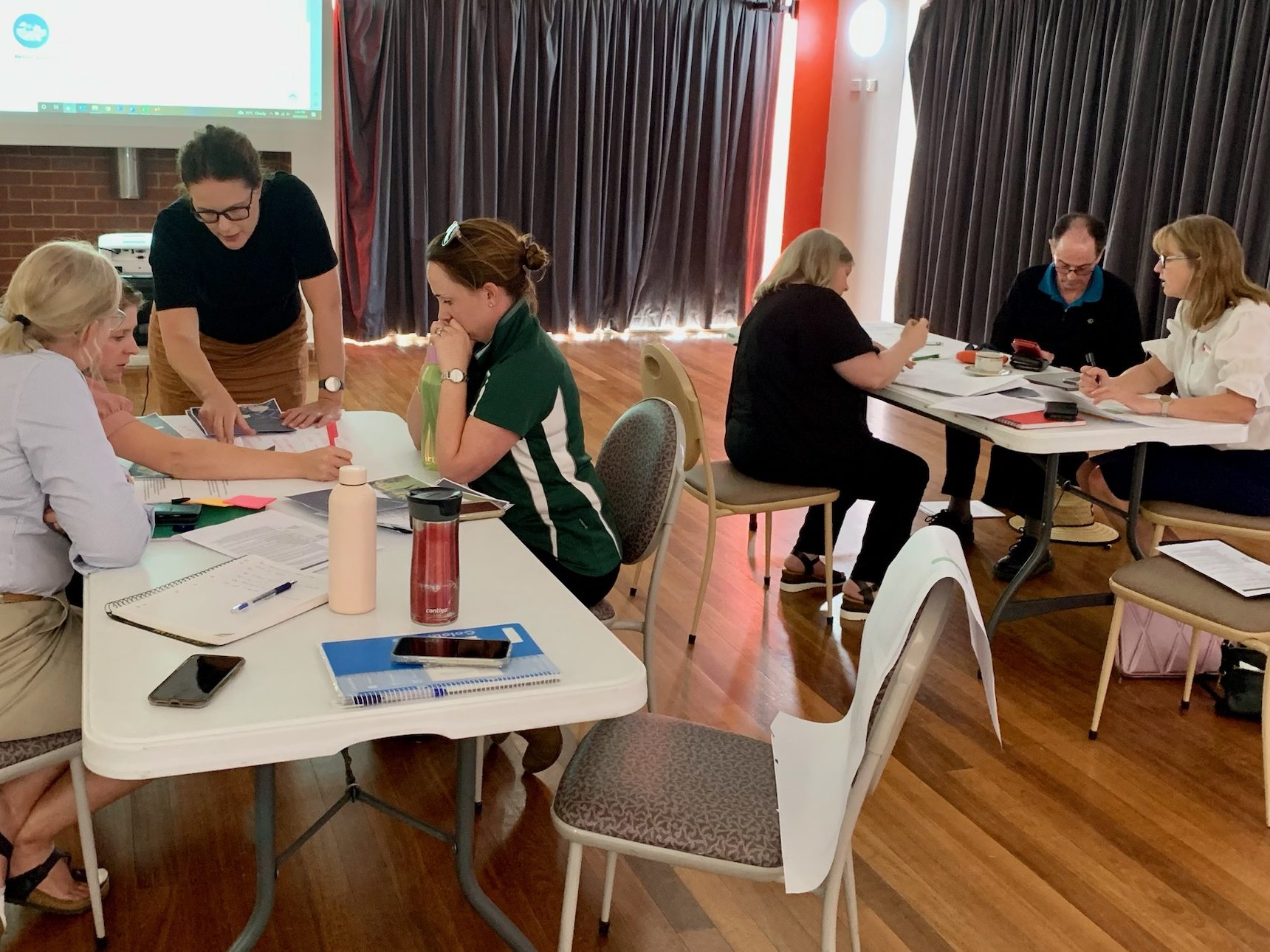Foundation for Rural & Regional Renewal (FRRR)
The Foundation for Rural & Regional Renewal (FRRR) and the Australian Rural Leadership Foundation (ARLF) have today announced the appointment of Nous Group to assess the impact of the Future Drought Fund’s Helping Regional Communities Prepare for Drought Initiative, which is funded by the Australian Government.

The Future Drought Fund’s Helping Regional Communities Prepare for Drought Initiative aims to build enduring resilience to the impacts of climate change and drought and to enhance the public good in agriculture-dependent communities. It focuses on building community capacity by strengthening social and community networking, support, engagement and wellbeing.
There are five parts to the Initiative, including the Community Impact Program, Small Grants, a Learning Network, Mentoring Program and Expertise Pool to support local groups implementing their projects, all of which will be evaluated.
While the evaluation will explore the outcomes of the Initiative, it will also provide valuable feedback on the various funding mechanisms employed and the impact of leadership development initiatives delivered. This will also reveal insights into the different ways that the Australian Government can invest in remote, rural and regional communities to address locally prioritised challenges. In total, $1.3 million will be invested in the process, reflecting the value that FRRR, ARLF and the Australian Government place on evaluation, something that is often not prioritised or funded.
Multi-year evaluation
The evaluation will take place over two and a half years and see Nous Group consult with the delivery partners, as well as other stakeholders, to develop the evaluation plan and then work closely with local leaders and with the delivery partners on the evaluation itself.
Phase 1 data collection and analysis is already underway, as the first tranche of funding has been awarded. An interim report will be prepared mid-2024, followed by workshops for community groups and stakeholders to unpack the learnings to date. Phase 2 of data collection will then get underway in August 2024, with the final report due September 2025.
FRRR’s Disaster Resilience and Recovery Lead, Nina O’Brien, says that there are great efficiency gains in having Nous Group undertake this work, as they are familiar with both the Future Drought Fund and with the delivery partners. “Nous Group supported the Department of Agriculture, Fisheries and Forestry (DAFF) to design the Measuring, Learning and Evaluation (MEL) framework for the overall Future Drought Fund, so they are intimately familiar with the overall aims of the various streams of work the Fund supports. They bring a depth of understanding and rigour to the process, while still being able to work closely with and relate to the groups delivering projects on the ground.
“What we are most excited about however, is that this process will help build the capacity of communities and stakeholders to engage with and ultimately undertake more formal evaluations of the projects and initiatives that they run. They can learn by doing. These skills will help local communities then better direct their limited resources, as well as be able to provide greater evidence to support funding applications for their initiatives.
“We look forward to working with Nous Group to co-design the evaluation approach and collect insights for the evaluation. We will also be connecting them directly with the local lead partner and other groups delivering projects in the community to understand the impact of the various elements of the Initiative, as well as bring together community groups and stakeholders to explore and interpret their findings,” Ms O’Brien said.
Matt Linnegar, CEO of the ARLF, says understanding the impact is becoming more important for people participating in initiatives, as well as those providing the support for it to happen.
“It’s increasingly important to understand the impact of initiatives like the Helping Regional Communities Prepare for Drought Initiative at depth and from multiple perspectives.
“This is because when we’re talking about leadership across regions and communities, we’re talking about people, relationships, networks and structures. Here, understanding the quantitative impact or intervention on the participant alone isn’t enough.
“It’s important to understand the individual and collective impact those people have on their regions and communities.
“As the ARLF continues to grow its work in the impact evaluation space, we highly value the collaboration with FRRR and work with Nous as an evaluation partner for this Initiative.”
Carlos Blanco, Nous Group Director, says Nous is excited to partner with the FRRR, ARLF and DAFF to collaborate with delivery partners, initiative participants and communities to help build even greater resilience within drought-prone communities.
“Nous has a long history of working with regional communities across Australia. We’re looking forward to co-designing and delivering an evaluation that strengthens the evidence base on how to empower remote, rural, and regional Australia to become more prepared for and resilient to the impacts of drought,” Mr Blanco said.
If community groups have any questions about the evaluation process, they can contact FRRR via futuredrought@frrr.org.au.

